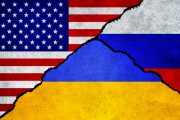
On July 10, the Washington News Observer (a Washington-based broadcast news service) conducted an interview with Sen Jim DeMint (R.-S.C.) in the Dirksen Senate Office Building regarding the situation in Honduras.
During that and other interviews, DeMint questioned the logic of the Obama administration’s position, which was first articulated during a June 29 White House press conference (the day after Zelaya’s removal). On that occasion, President Barack Obama said: "President Zelaya was democratically elected. He had not yet completed his term. We believe that the coup was not legal and that President Zelaya remains the President of Honduras, the democratically elected President there. In that we have joined all the countries in the region, including Colombia and the Organization of American States."
Regarding the administration’s ongoing favoritism towards Zelaya and snubbing of the new Honduran government’s representatives. DeMint said: "I am just at a loss to understand why the Obama Administration is saying that this was an illegal coup and that the constitutional process was interrupted. The facts don’t appear to back them up."
As we noted on June 29 in our first of several reports about the Honduras crisis: "While practically all of the world’s media has referred to the change in power in Honduras as a coup, the nation’s own governmental institutions, including its supreme court and congress, insist that the removal of Zelaya was done in accordance with the nation’s constitution."
During the interview, DeMint constantly hammered away at a very significant point: that one of deposed President Zelaya’s biggest supporters and allies has been the Marxist Venezuelan strongman, Hugo Chavez:
When the United States is on the side of Chavez, who hates us, who’s trying to organize the whole region against us, we’ve just got to ask if we’re on the right side. Chavez, Ortega, the Castro brothers are clearly not on the side of freedom. They want to install puppet dictators throughout Central and South America and they’ve done a good job of that so far — and they’re trying to do that in Honduras — and it appears the United States is going to help them.
Senator DeMint is very perceptive and likely realizes that most communist governments have come to power with U.S. and other Western support.
This is not the only instance of DeMint and several other U.S. senators raising questions about the Obama-Chavez support of Zekaya.
On July 8, the South Carolinian questioned the position of the Obama administration on Honduras during a Senate Foreign Relations Committee hearing with President Obama’s nominee for Assistant Secretary of State for the Western Hemisphere, Arturo Valenzuela. A statement posted on the senator’s blog that evening noted that over the prior two days several other Republican senators joined DeMint to speak out in support of the Honduran people’s plight to "preserve their democracy." (More about the word "democracy" in a minute.) The DeMint statement named Senators Mel Martinez (R-Fla.), Jon Kyl (R-Ariz), and Tom Coburn (R-Okla.) as having voiced support for the rule of law on the floor of the Senate. DeMint, Martinez, and Coburn were joined by Sen. John Cornyn (R-Texas) at a press conference where they urged the administration to reconsider its current stance, for which DeMint gave the administration the benefit of the doubt, attributing it to having been "made in haste before all the facts were in."
Which was a much more generous explanation for the Obama administration’s actions than this writer would have offered.
DeMint stated that 16 senators joined him in sending a letter to Secretary of State Hillary Clinton asking her and President Obama to reassess their stance on the situation in Honduras and urging them to meet with democratically elected members of Honduran Congress currently visiting the United States.
The DeMint statement adamantly concluded: "This was not a coup, it was the constitutional removal of a would-be Chavez-style dictator and Obama has once again sided against American interests and against people standing for freedom and democracy."
We were beginning to despair of ever hearing a voice of reason challenging the Obama administration’s irrational decision to line up on the side of the radically leftist Hugo Chavez — a decision that lends the prestige of the United States to one side in what should be regarded as an internal political matter to be settled according to the laws of a sovereign nation. Senator DeMint and his colleagues in the Senate deserve the thanks of their constituents, and all Americans, for taking a stand on the side of common sense and principle.
In fact, we can think of only one aspect of the DeMint-and-company actions to which we must take exception — their frequent bandying about of the much-overused, but little-understood word, "democracy." In addition to the examples we cited above, the letter from the 17 senators to Secretary Clinton contained such statements as:
• "It appears that the elected officials of Honduras — representing their constituents — did indeed choose their own leader and the system of checks and balances, instrumental to a functioning democracy, actually worked as prescribed." (Emphasis added.)
• "We look forward to working with you to ensure the respect for the rule of law in Honduras and of freedom and democracy in Latin America." (Emphasis added.)
Notice that the first statement offers the example of elected officials representing their constituents and also says that the Honduran system of checks and balances worked as prescribed. That is an accurate description, but it is a description of how things work in a republic, not a democracy. If Honduras were a democracy, a recall election would have been held in which a majority of Honduran voters would have had the opportunity to remove Manuel Zelaya from office. And of course, there would be no checks and balances. A democracy is majority rule; a republic is a government of law.
Which leads us to the second statement, which asks that Secretary Clinton work to ensure respect for the rule of law in Honduras. Again, the rule of law is a definition of how things work in a republic. In a democracy, a majority of voters can overrule the rule of law, to the detriment of the rights of the minority. As for working to ensure freedom and "democracy" in Latin America, the two concepts are diametrically opposite. Alexander Hamilton (an author of The Federalist who should have known a thing or two about what form of government he was advocating) wrote: "We are a Republican Government. Real liberty is never found in despotism or in the extremes of Democracy."
Skeptics may also want to consider the following statements:
• "Democracies have ever been spectacles of turbulence and contention; have ever been found incompatible with personal security, or the rights of property; and have in general been as short in their lives as they have been violent in their deaths." — James Madison
• "Remember, Democracy never lasts long. It soon wastes, exhausts and murders itself! There never was a democracy that did not commit suicide." — Samuel Adams
While these 17 well-meaning senators seem to know much more about the Honduran constitution than their colleagues, it seems a refresher course about our own Constitution and the governmental structure our Founders adopted in 1787 is in order. We strongly recommend that all of our elected officials — and their constituents — read the New American article "A Republic, if You Can Keep It" by John F. McManus.
Photo of Sen. Jim DeMint: AP Images

